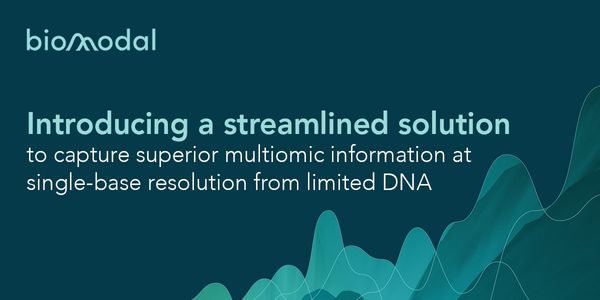OCT 25, 2023 | 10:00 AM
Oxidative stress, a critical factor affecting cell health, has gained prominence in assessing various medical conditions. Given this importance, researchers need a wide range of tools to tho...
OCT 24, 2023 | 9:00 AM
DNA comprises molecular information stored in genetic and epigenetic bases, both of which are vital to our understanding of biology in health and disease. The interaction of genetics with th...
OCT 19, 2023 | 10:00 AM
Introducing the new CytoScan HD Accel microarray that significantly improves the power and speed of genome-wide copy number analysis using industry-leading Chromosomal Microarray (CMA). The...
OCT 19, 2023 | 12:00 PM
Introducing the new CytoScan HD Accel microarray that significantly improves the power and speed of genome-wide copy number analysis using industry-leading Chromosomal Microarray (CMA). The...
OCT 18, 2023 | 9:00 AM
In this webinar, Jenny Meredith, Ph.D., HCLD(ABB), Clinical Microbiology Director at Prisma Health-Upstate joins forces with Sara Ezra, Molecular Supervisor at Pathology Consultants (subsidi...
OCT 17, 2023 | 9:00 AM
Introducing the new CytoScan HD Accel microarray that significantly improves the power and speed of genome-wide copy number analysis using industry-leading Chromosomal Microarray (CMA). The...
OCT 12, 2023 | 6:00 AM
Acute coughing is one of the most common reasons for consulting in primary care thus driving considerable antibiotic use and health-care costs. Currently, identification of microbial etiolog...
OCT 11, 2023 | 9:00 PM
Epigenetic modifications such as DNA methylation have long shown promise as potential biomarkers to diagnose and guide treatment of many human diseases, including multiple types of cancers....
OCT 10, 2023 | 10:00 AM
For patients with advanced non-small cell lung cancer (NSCLC), tissue samples are typically small biopsies. These samples undergo standard of care evaluation for >10 biomarkers to identif...
One of the central tenets of biology is that our genetics—our genotype—influences the physical characteristics we manifest—our phenotype. But with more than 25,000 human ge...
OCT 05, 2023 | 1:00 AM
Organoids continue to gain traction in drug discovery efforts as they offer a more biologically relevant disease model than traditional approaches. But they aren't without challenges. Jo...
Informed consent (IC) is a fundamental aspect of ethical clinical research, safeguarding the rights and well-being of participants. It empowers participants with comprehensive information ab...





















